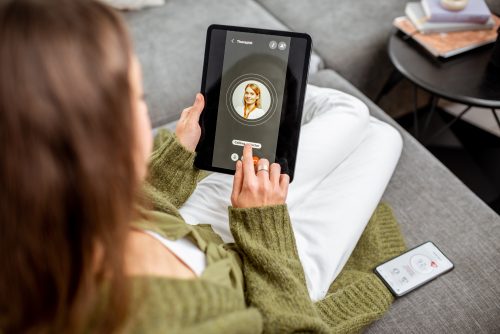Аманда Дейлі (Amanda Daley), Університет Лафборо, Великобританія
ликобританії та Ірландії ініціатива «Кожен контакт має значення» (Making Every Contact Count) спрямована на використання тисяч консультацій, які щодня проводяться між фахівцями охорони здоров’я та пацієнтами, для сприяння здоровим змінам у поведінці. Зокрема, ініціатива «Кожен контакт має значення» (Making Every Contact Count) спрямована на те, щоб дати можливість і заохотити медичних працівників використовувати природні можливості, що виникають у повсякденній практиці, для проведення коротких втручань щодо зміни поведінки пацієнтів у відношенні до здоров’я. Успіх таких ініціатив, як «Кожен контакт має значення», залежить від готовності медичних працівників щодня проводити ці бесіди під час консультацій. Ініціатива «Кожен контакт має значення» враховується для всіх і не обмежується окремими медичними працівниками, службами охорони здоров’я або пацієнтами. З цих причин ініціатива «Кожен контакт має значення» може сприяти скороченню нерівності у сфері охорони здоров’я, оскільки ідея полягає у застосуванні інклюзивного підходу, за якого всі пацієнти отримують цю підтримку під час консультацій.
Важливість підтримки людей, які ведуть малорухливий спосіб життя, щоб вони стали фізично активнішими, стає все більш визнаною як важлива частина ролі медичних працівників. Крім того, кожна четверта людина була б активнішою, якби отримала рекомендації від медичного працівника (health professional). Також існують докази (evidence) того, що короткі (1–2 хвилини) втручання у процес зміни поведінки у сфері здоров’я в рамках консультацій можуть бути ефективними. «Кожен контакт має значення», оскільки люди, які регулярно користуються послугами охорони здоров’я та взаємодіють з медичними працівниками, страждають на неінфекційні захворювання або схильні до ризику їх виникнення і з більшою ймовірністю будуть вести малорухливий спосіб життя (inactive.).
Хоча в рекомендаціях (guidance) зазначено, що дорослим слід приділяти не менше 150 хвилин помірної фізичної активності на тиждень або 75 хвилин інтенсивної активності або поєднувати обидва варіанти, тепер у них також визнається, що участь у коротких періодах фізичної активності може мати позитивний вплив на здоров’я. Насправді, в рекомендаціях (guidance) говориться, що будь-яка кількість фізичної активності важлива для здоров’я та її невеликий обсяг краще, ніж відсутність фізичної активності. Регулярне донесення цих простих, але важливих рекомендацій до пацієнтів під час консультацій могло б суттєво покращити здоров’я населення у всьому світі (world).
Дослідницька програма «Snacktivity™» є прикладом (An example) реалізації ініціативи «Кожен контакт має значення» у Великобританії. «Snacktivity™» (Snacktivity™) закликає громадськість брати участь у коротких, але частих «перекусах» фізичної активності помірної та високої інтенсивності, а також у заняттях, що ґрунтуються на розвитку м’язової маси/сили протягом усього дня/тижня. «Активний перекус» зазвичай триває від 2 до 5 хвилин. За задумом програма «Snacktivity™» природним чином сприяє припиненню тривалого сидіння протягом дня за рахунок регулярних «перекусів», пов’язаних з фізичною активністю. Прикладами «перекусу» фізичної активності є жваві розмови під час ходьби, використання сходів замість ліфта, дуже швидка прогулянка з собакою, підйоми на пальці ніг під час чищення зубів та присідання в очікуванні закипання чайника. Програма «Snacktivity™» була розроблена як проста рекомендація для всіх медичних працівників, яку можна просувати серед пацієнтів під час консультацій у різних медичних контекстах (across different health contexts). «Snacktivity™» націлена на популяризацію фізичної активності у форматі, який є новим та мотивуючим для громадськості, незалежно від її фізичних здібностей та рівня підготовки та не потребує використання спеціального обладнання. Потенційна зручність акумулювання «Snacktivity™» у повсякденній діяльності робить її доступною майже кожному. Сімейні лікарі, медсестри, стоматологи, фізіотерапевти, ерготерапевти та ортопеди пройшли навчання з просування «Snacktivity™» під час консультацій, і вони повідомили, що це може працювати (work,) за умови деякої гнучкості у графіку прийому.
Але, звісно, можуть існувати перешкоди (barriers) на шляху реалізації ініціативи «Кожен контакт має значення», зокрема наявність достатнього часу (time) для консультацій, щоб провести такі розмови із пацієнтами. Ми знаємо, що медичні працівники можуть неохоче піднімати теми, пов’язані з профілактичною медициною під час консультацій, через страх незнання як найкраще підтримати пацієнтів або через побоювання спричинити образу (causing offence). Наявність у медичних працівників навичок та впевненості (confidence) для ведення подібних розмов з пацієнтами є дуже важливими для забезпечення цілісності взаємин з пацієнтами. Пропагування фізичної активності серед пацієнтів, які звертаються за консультацією з причин, не пов’язаних зі здоровою поведінкою, може здатися досить недоречним і недоцільним. Наприклад, стоматолог зазвичай не обговорює з пацієнтами питання фізичної активності, оскільки вони не пов’язані зі здоров’ям ротової порожнини, хоча в програмі «Snacktivity™» це трапляється (happen). Тим не менш, важливо визнати, що медичні працівники повинні відчувати себе комфортно, проводячи такі короткі медичні втручання для пацієнтів, але цього можна досягти шляхом навчання і практики.
Нижче наведено п’ять пропозицій, які слід взяти до уваги при впровадженні ініціативи «Кожен контакт має значення», як програма «Snacktivity™», медичними працівниками:
Практичні рекомендації
- Подумайте, чи є в ході ваших консультацій моменти, коли можна порушити тему зміни способу життя та поведінки. Наприклад, скористайтеся можливістю, щоб запитати своїх пацієнтів про те, яку щотижневу фізичну активність вони виконують і чи є у них в розпорядку дня час, коди вони могли б включити «Snacktivity™».
- З’ясуйте, чи існують на місцевому рівні можливості, за допомогою яких ви можете надати пацієнтам додаткову підтримку та ресурси, щоб вони могли вести фізичну активність у своїх спільнотах.
- Шукайте можливості навчання у вашій країні або онлайн, щоб розвинути свої навички у наданні ефективних рекомендацій щодо зміни здорової поведінки вашим пацієнтам. Ось два приклади з Великобританії, які можуть бути корисними: «Кожен контакт має значення» (Making Every Contact Count (MECC) та «Активні розмови» (Active Conversations).
- Якщо у вас є досвід пропаганди фізичної активності під час консультацій зі своїми пацієнтами, ви могли б допомогти та підтримати колег, які можуть відчувати себе менш впевнено у цьому питанні.
- Ви можете стати послом на своєму робочому місці та відстоювати ініціативу, що «Кожен контакт має значення». Якщо ви керівник вищої ланки або менеджер з охорони здоров’я, ви можете проаналізувати свої медичні послуги, щоб зрозуміти, як їх можна інтегрувати.
Перекладач: Ольга Габелкова

